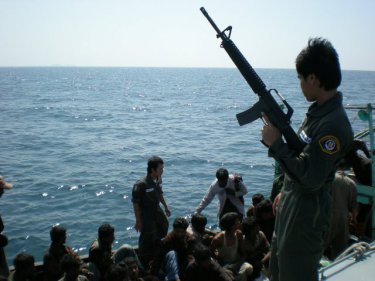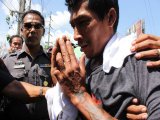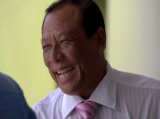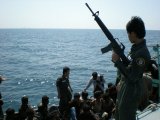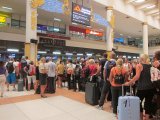News Analysis
PHUKET: The flow of Rohingya boatpeople sailing past Phuket and the Andaman coast has no connection to the fighting in Thailand's Deep South, an expert researcher said today.
Australian Marc Askew, a political anthropologist who has made an in-depth study of the long separatist struggle in southern Thailand, rejects the idea that the Muslim Rohingya are involved.
''I have talked to many senior people in the Army and local administrators,'' he said. ''None of them have ever suggested a Rohingya involvement.
''Besides, if Rohingya were involved, then Rohingya would be among the casualties. There have been no Rohingya casualties.''
Dr Askew, speaking from Melbourne, said that journalists in Thailand and Burma were ''playing dirty'' in making the connection.
''If reporters are presenting this idea, then they have it wrong,'' he said.
Back in 2009, the Thai Government was so concerned that Rohingya might be joining the insurrection that they sent leading forensic scientist Dr Porntip Rojanasunan to check the boats and the clothing of the boatpeople for signs of bombs and weapons. Dr Porntip found nothing.
The ''dirty'' rumor has now been resurrected in the wake of the fighting between Rohingya and the Buddhist inhabitants of Rakhine province, in north-west Burma, and increasing terrorism in the deep south of Thailand.
As many as 5000 Burmese monks marched in the street of Mandalay at the weekend in support of President Thein Sein's suggestion that Muslim Rohingya be deported or held in camps.
It was the biggest rally since the end of junta rule. The monk who led the march told AFP the protest was to ''let the world know that Rohingya are not among Myanmar's ethnic groups at all''.
The campaign to push the Rohingya from Burma (also known as Myanmar) will inevitably put more would-be-refugees into boats sailing towards Phuket and southern destinations in about four weeks, when the monsoons fade and the sailing season begins.
The campaign has already demonstrated that Burma's entrenched racism, not religion, is the force behind the movement.
And it has given the Muslim nations of the world an opportunity to make political capital from the tragedy, highlighting how little the non-Muslim world has done to curb or even criticise Burma for its unacceptable apartheid-style policy.
Indoctrinated for generations in the belief that the Rohingya are non-Burmese occupiers with no legitimate rights, the advent of greater freedom in Burma has unleashed hate and is fanning the prospect of genocide.
The plight of the Rohingya, ignored by the whole world for decades, is now being turned into a cause celebre in the Muslim world.
There is no doubting that the concerns are genuine, and the practical aid for the Rohingya is real and much-needed.
But there is the prospect of the broader issue of the Rohingya and their mistreatment being hijacked, and turned into a political stick that will be wielded to lash the slow-to-act West.
Instead of offering fair solutions based on the justice of the Rohingya's claims to Burmese citizenship, Aung San Suu Kyi and opposition groups in Burma have remained silent for fear of losing support.
The racism engendered under the rule of the junta is complete and has created a unity of intolerance among Burmese that shocks outsiders.
Calamity may be yet to come. Rohingya are likely to take to the boats this sailing season in greater numbers than before, virtually pushed out to sea from their burned and razed villages by former neighbors.
To the south in Thailand, the military and trained villagers are waiting to ''help on'' the boats along the Andaman tourist coast, pushing them past Phuket to Muslim-majority Malaysia.
Those who once doubted the UN description of the Rohingya as among the most persecuted people in the world no longer have reservations.
That so little has been done over decades is an indictment on all governments, especially those in the Asean neighborhood.

